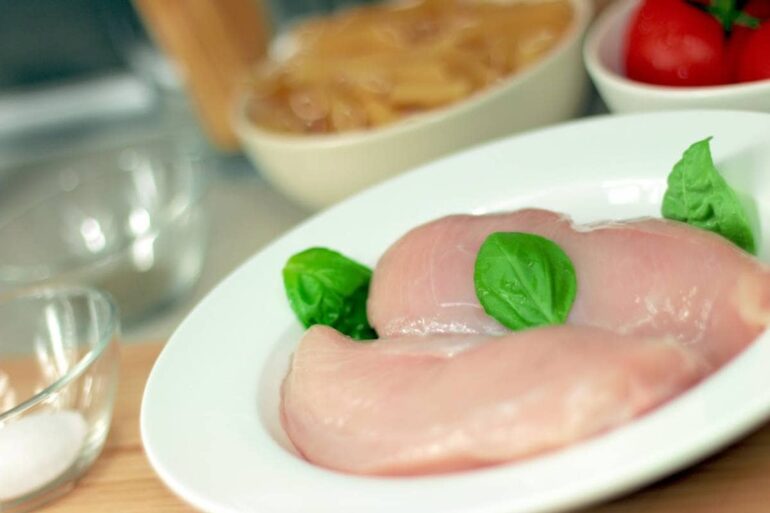Traveling abroad can be an adventure for your taste buds, but it also comes with its own set of risks.
Here are 14 food poisoning risks to watch out for to ensure your trip stays safe and enjoyable.
1. Tap Water
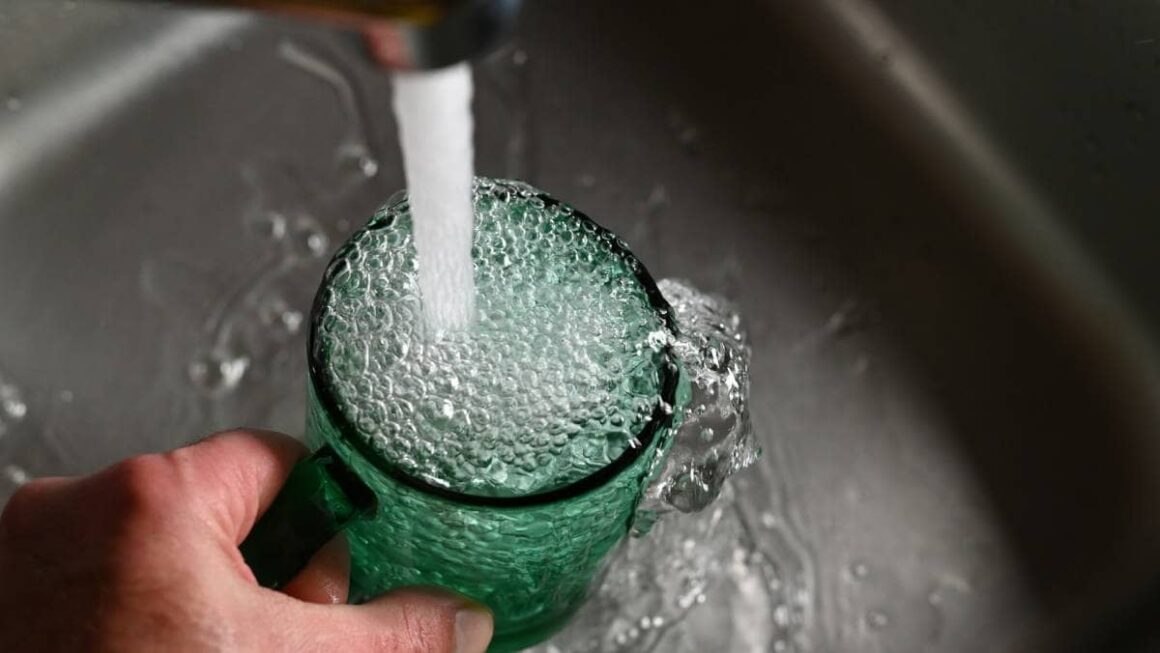
Avoid drinking tap water in countries where it’s deemed unsafe. This includes using bottled or boiled water for brushing your teeth. Tap water can harbor harmful bacteria and parasites that your system isn’t used to, leading to nasty bouts of food poisoning.
2. Ice Cubes
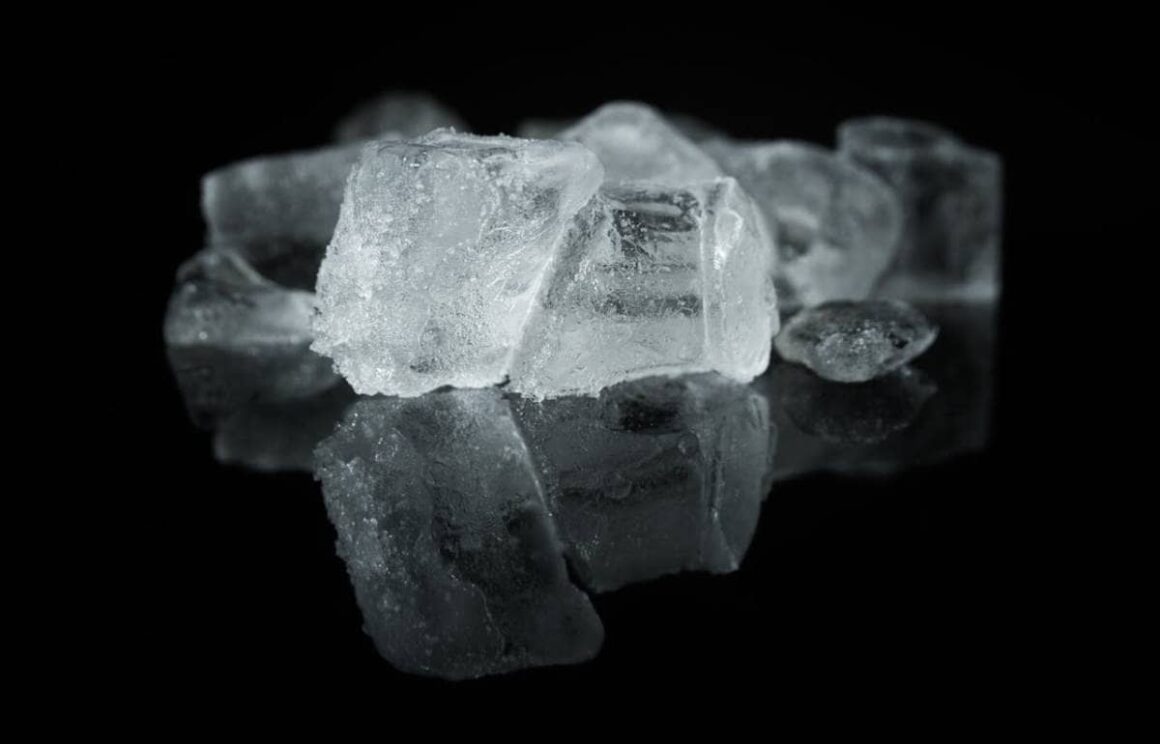
Skip drinks with ice cubes, especially in places where the water quality is questionable. Ice cubes are often made from tap water and can carry the same risks as drinking the water itself. Opt for beverages without ice or ensure they are made from purified water.
3. Raw or Undercooked Meat
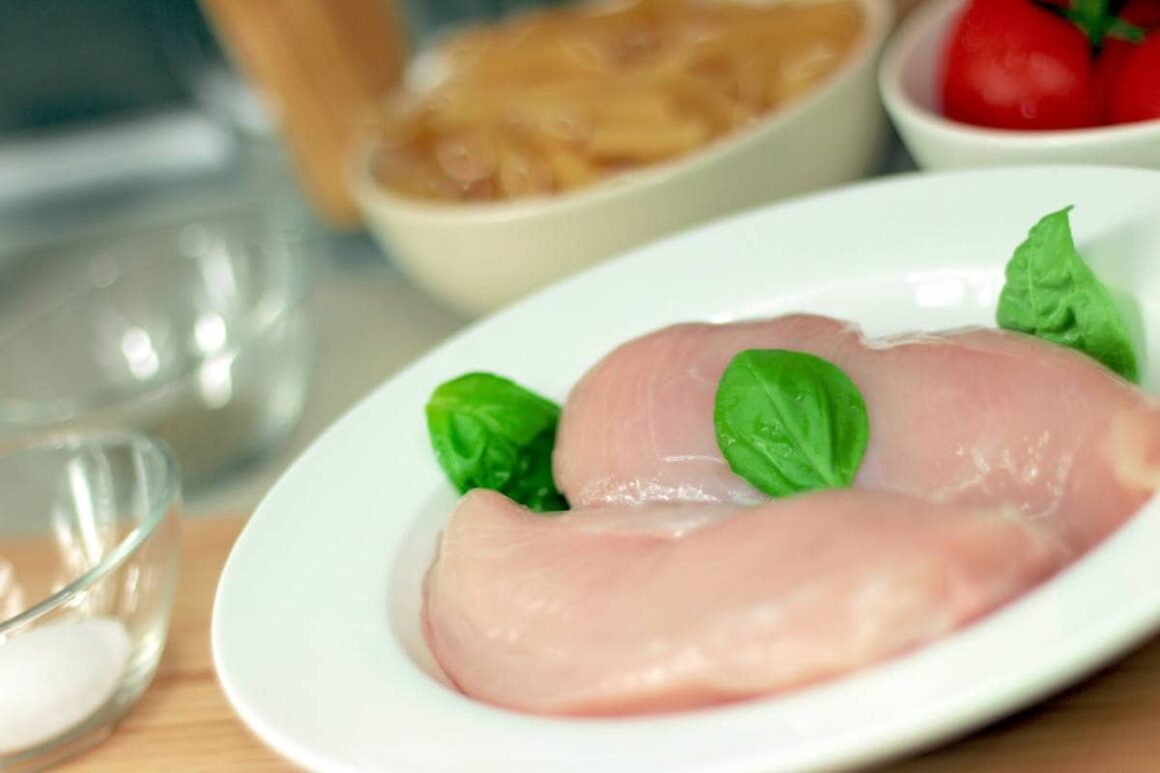
Ensure meats, particularly chicken and pork, are thoroughly cooked. Raw or undercooked meat can be a breeding ground for bacteria like Salmonella and E. coli. When dining out, don’t hesitate to send food back if it looks undercooked.
4. Street Food
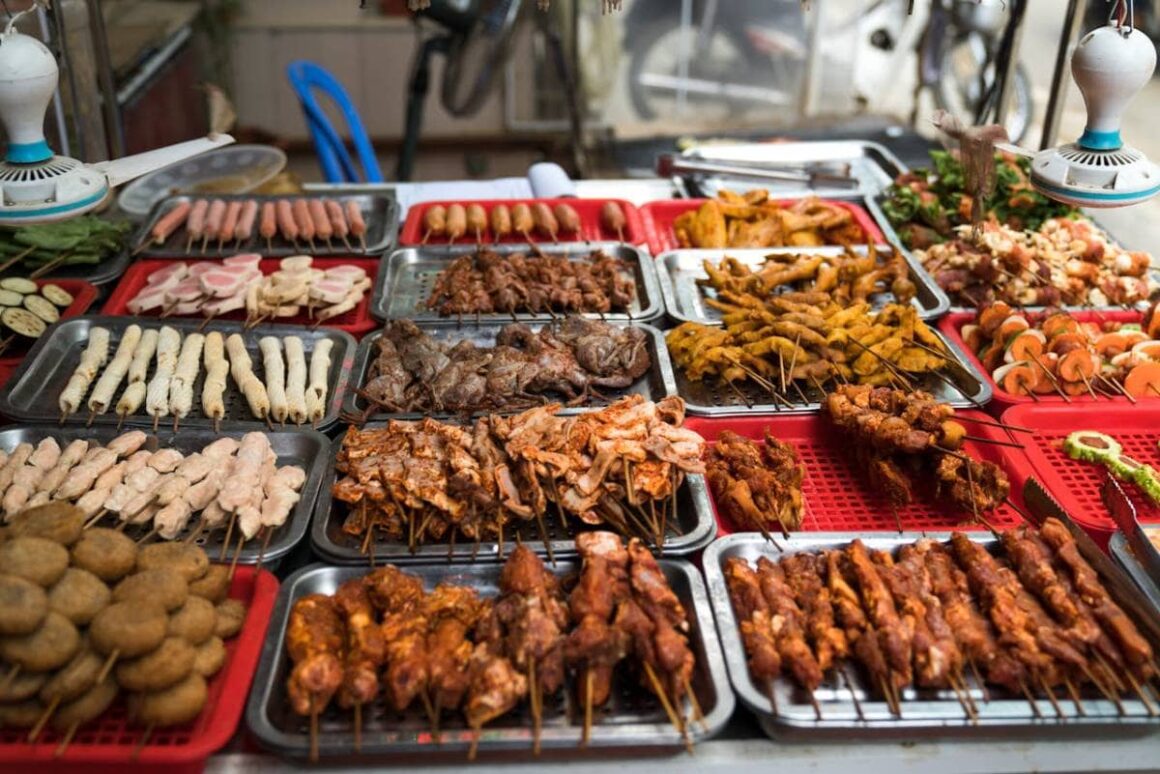
Be cautious with street vendors, especially those who might not practice proper hygiene or food storage. While street food can be delicious and authentic, it’s important to choose vendors who appear to follow good sanitation practices to avoid any foodborne illnesses.
5. Unpasteurized Dairy Products
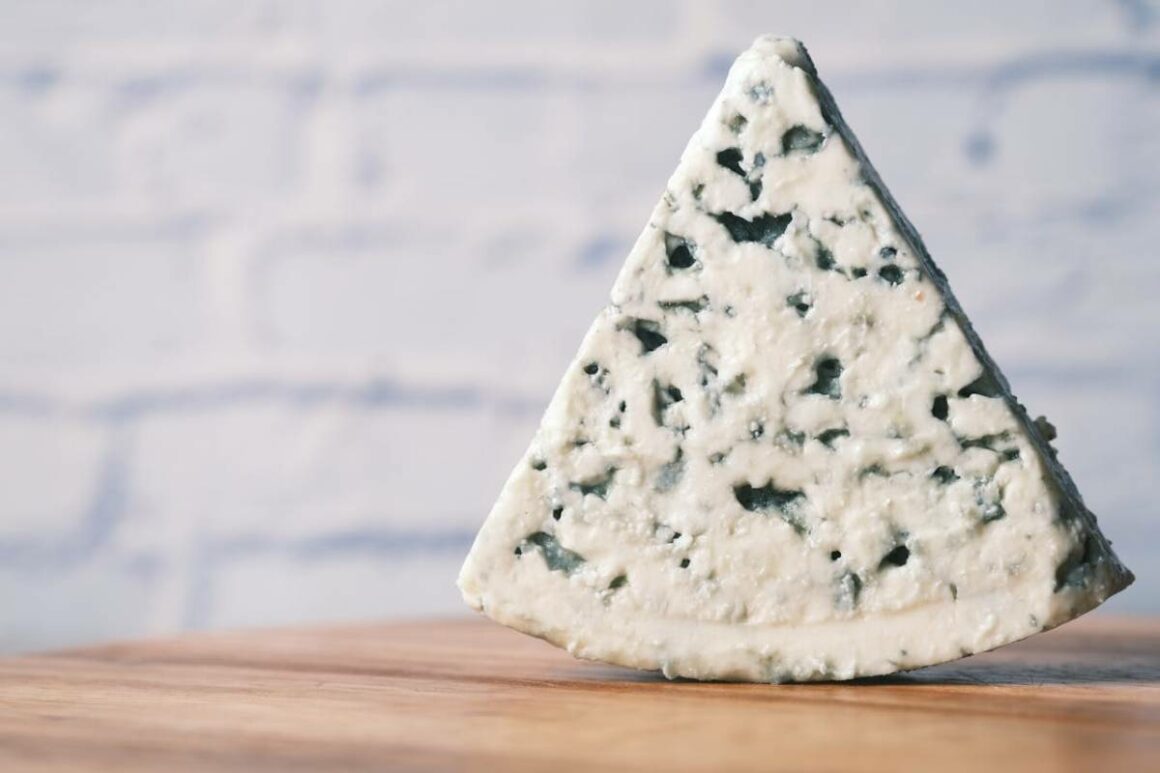
Avoid raw milk, cheese, and other unpasteurized dairy products. These can carry harmful bacteria like Listeria, which can cause serious health issues. Stick to pasteurized dairy products to play it safe.
6. Raw Fruits and Vegetables
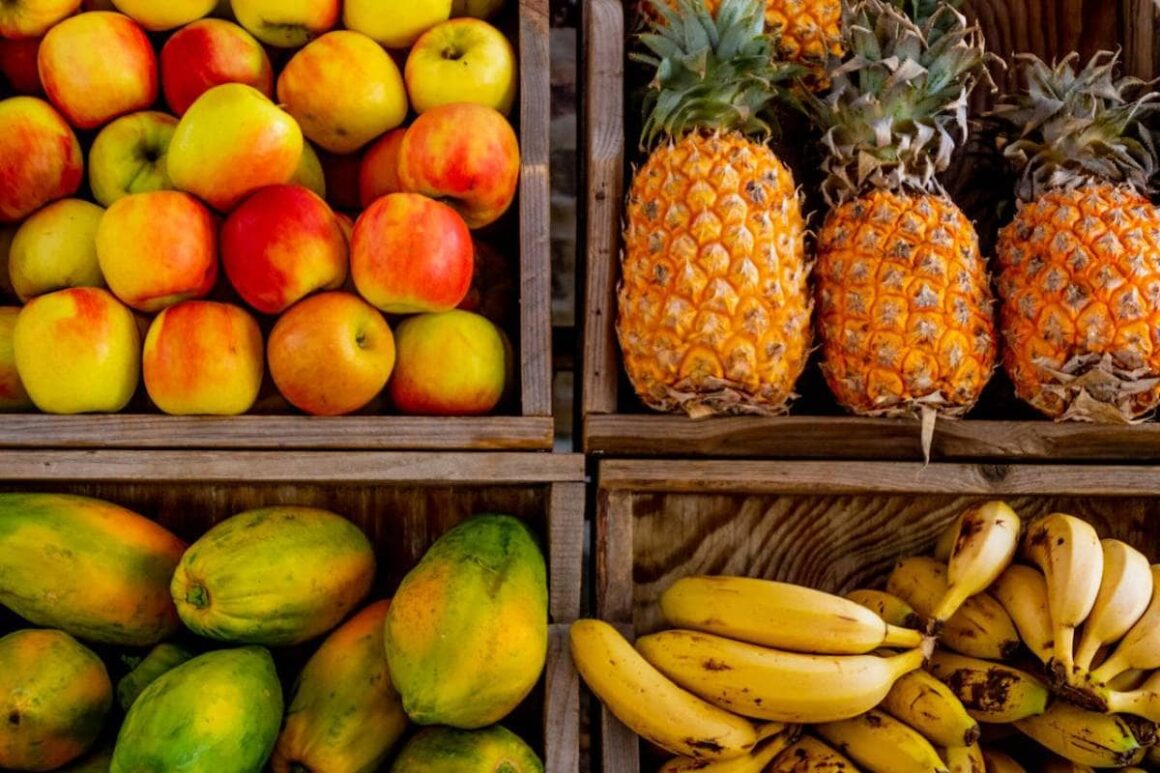
Be wary of uncooked produce, especially if it may have been washed in tap water. Fruits and vegetables can be contaminated during washing or handling. Opt for cooked vegetables and peel fruits yourself to minimize risk.
7. Buffets
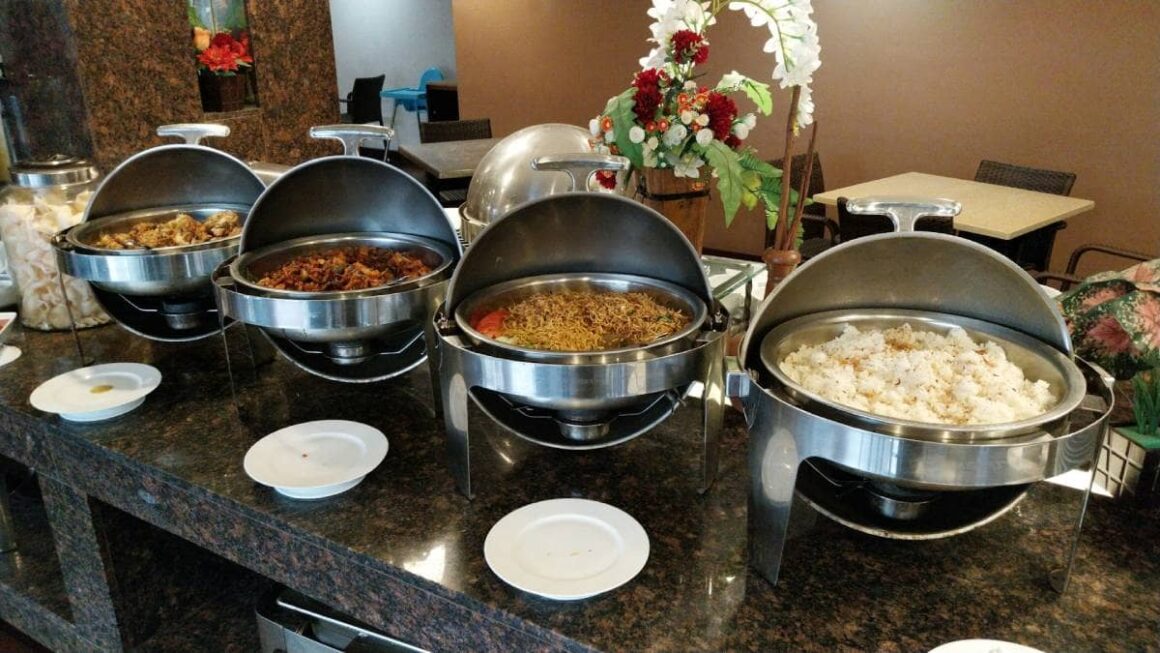
Food at buffets may have been sitting out for long periods, increasing the risk of contamination. Buffets can be a hotbed for bacteria growth if food isn’t kept at the proper temperature. Choose freshly prepared items and avoid dishes that look like they’ve been out for a while.
8. Seafood
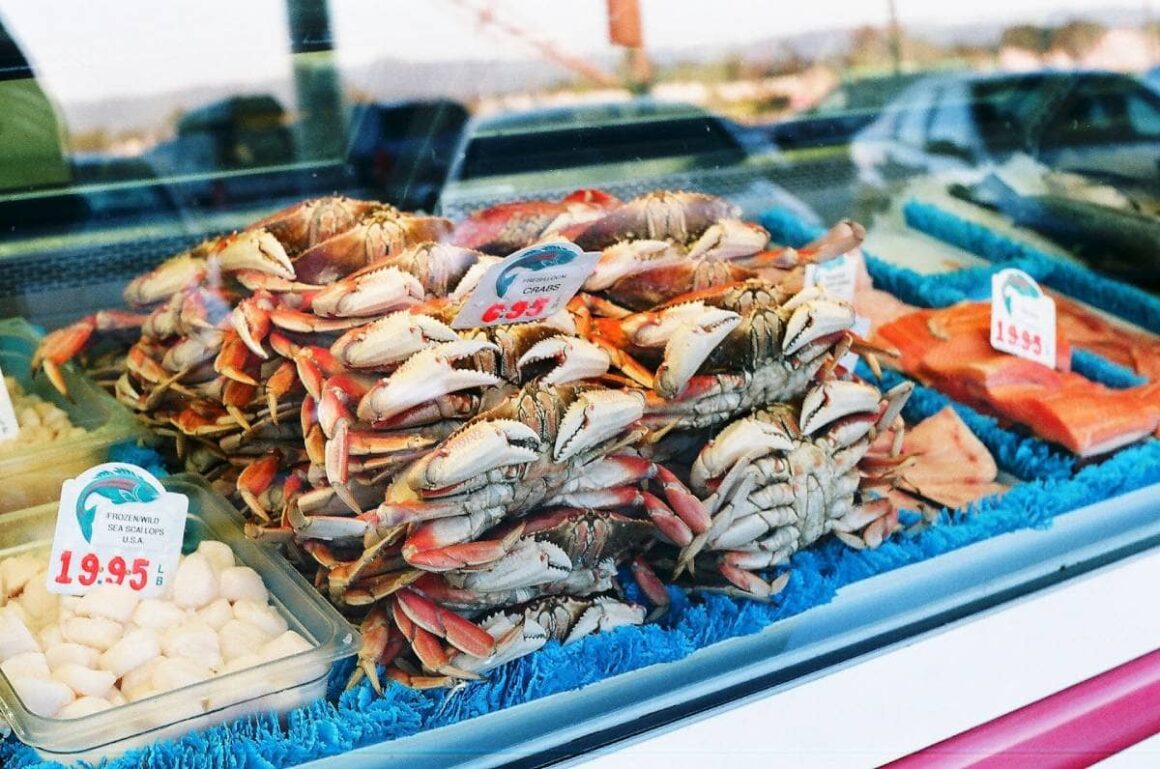
Be cautious with raw or undercooked seafood, especially shellfish. Seafood can be contaminated with bacteria and viruses from polluted waters. Always ensure seafood is thoroughly cooked and sourced from reputable places.
9. Condiments
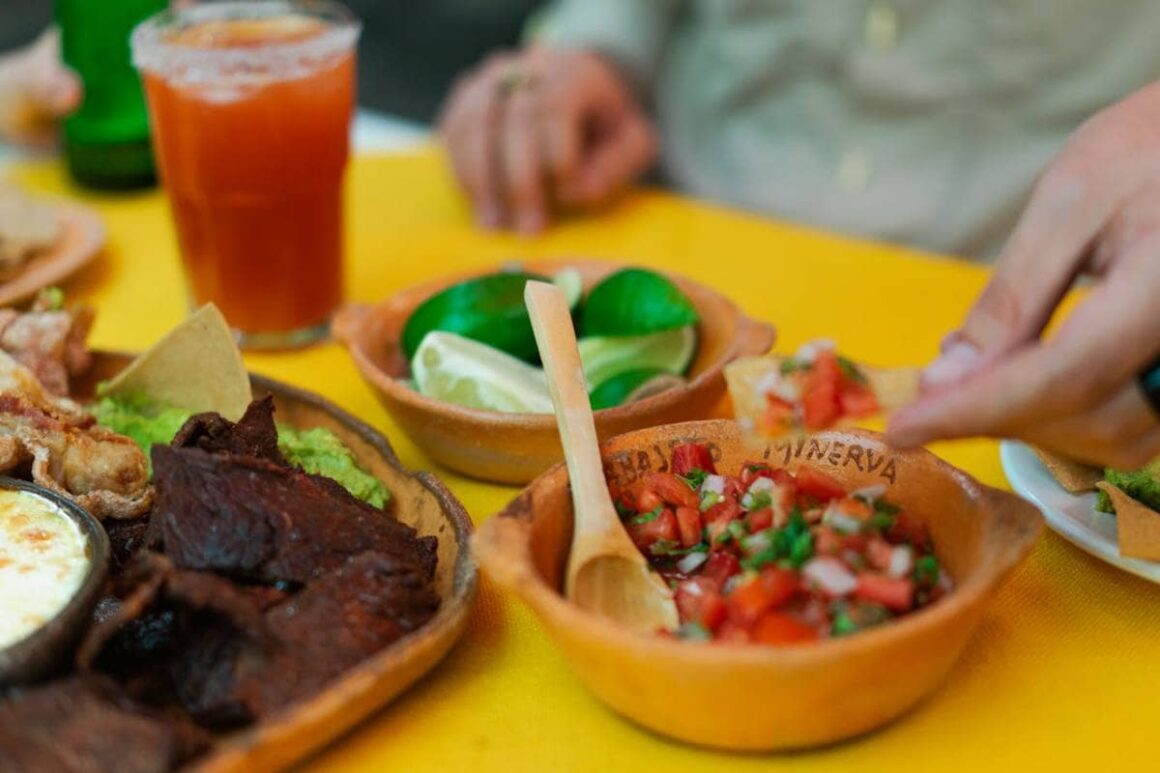
Avoid fresh condiments like salsa that might be made with local water or uncooked ingredients. Condiments can easily become contaminated, especially if they are made fresh and sit out for extended periods. Stick to sealed, packaged condiments when possible.
10. Fountain Drinks
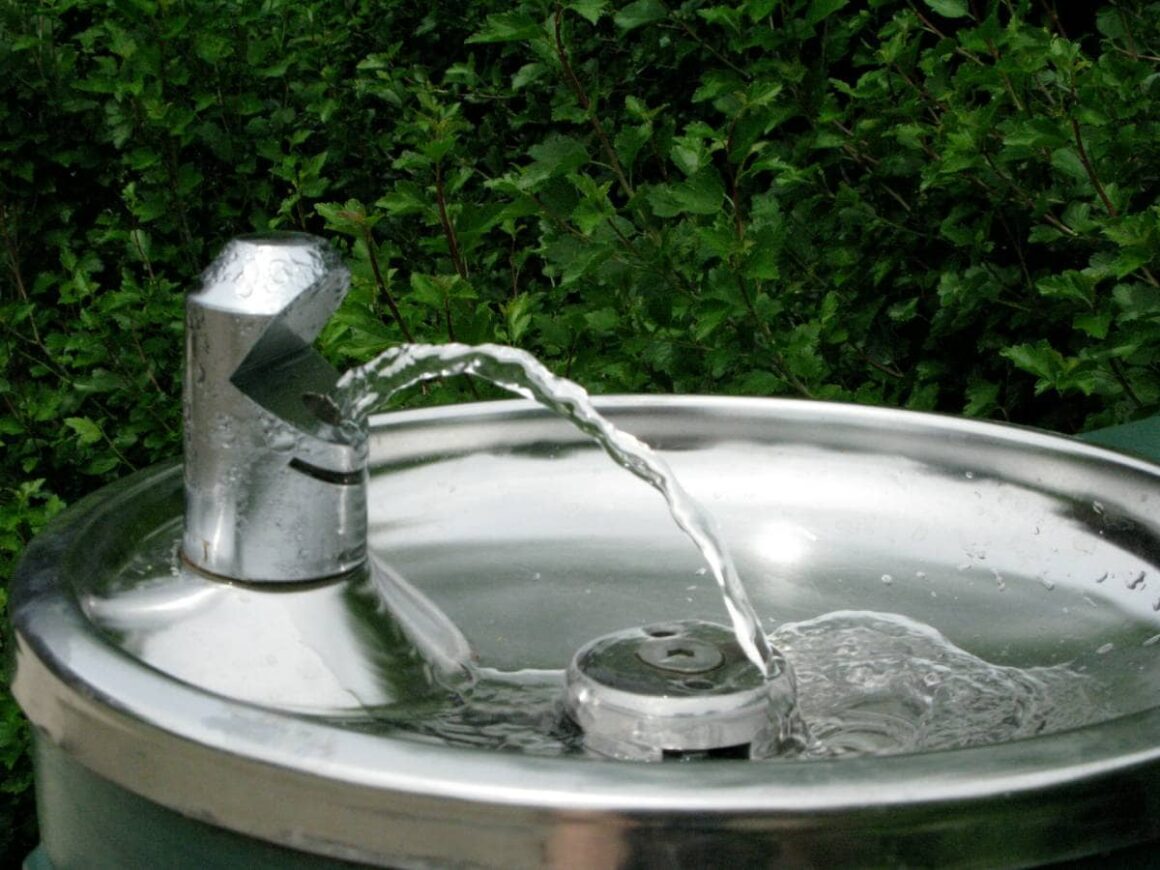
Fountain drinks are often mixed with tap water and may harbor bacteria. The machines used to dispense these drinks can also be breeding grounds for bacteria if not properly cleaned. Opt for bottled beverages to be safe.
11. Raw Local Delicacies
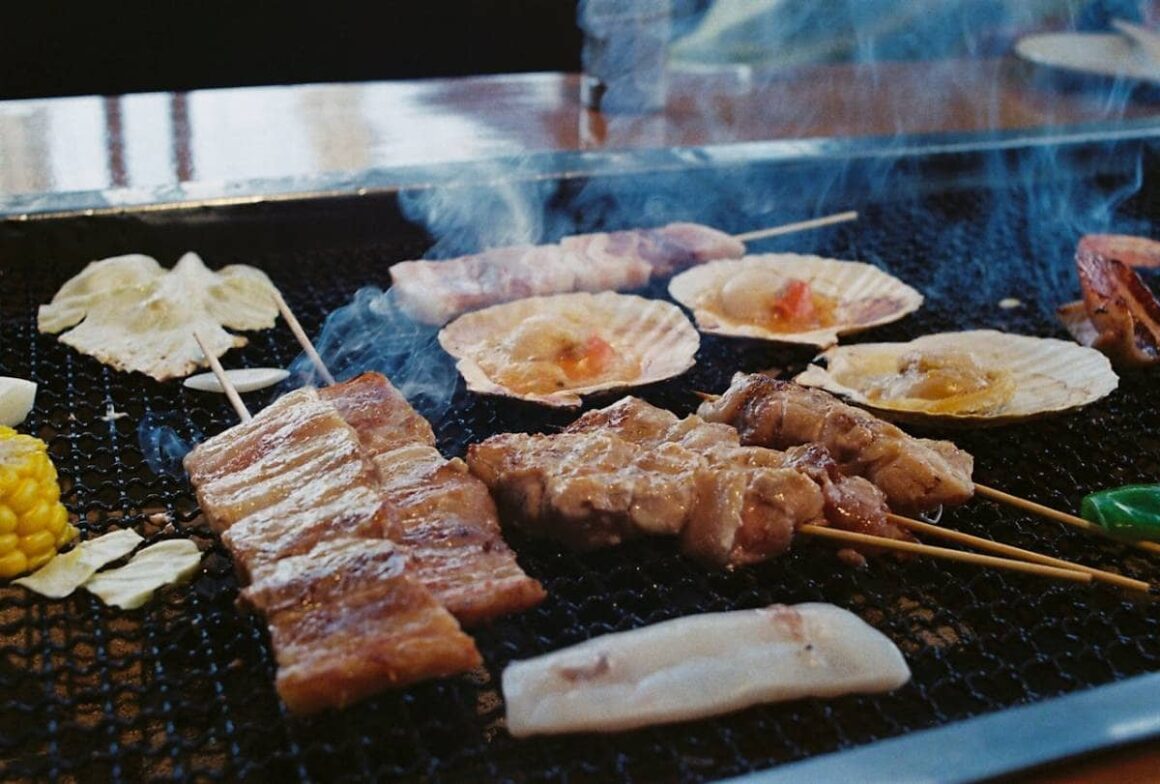
Be cautious with unfamiliar local dishes, especially those containing raw or exotic ingredients. While it’s exciting to try new foods, some local delicacies may not sit well with your stomach and can pose a risk if not prepared safely.
12. Room Temperature Foods
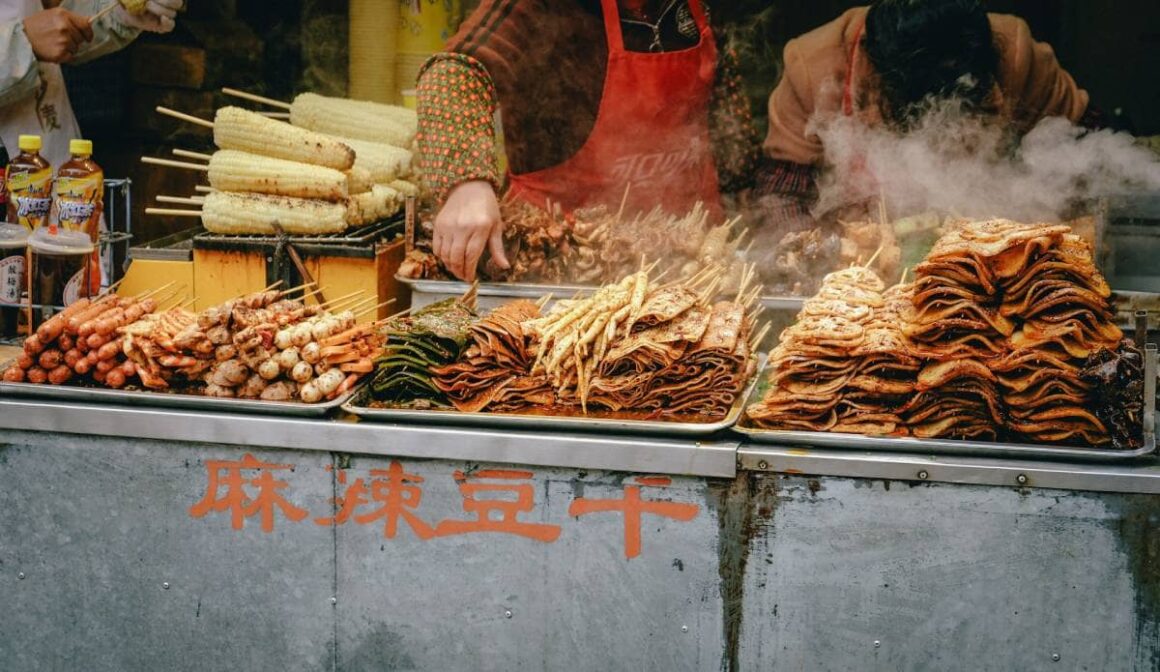
Avoid foods that have been sitting out at room temperature for extended periods. Bacteria multiply quickly at room temperature, making these foods high-risk. Always choose freshly prepared items that are served hot.
13. Unwashed Hands
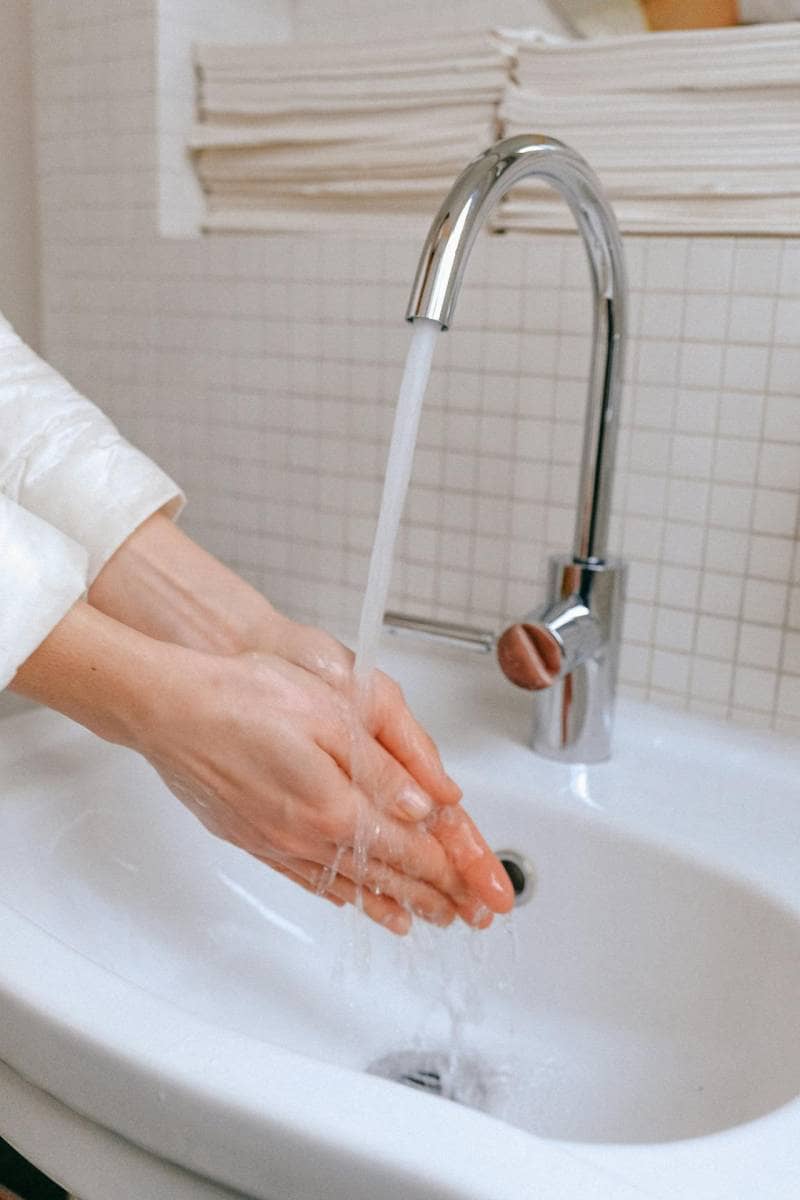
Always wash your hands before eating, preferably with bottled water and soap. Unwashed hands can transfer bacteria to your food, leading to illness. Carry hand sanitizer for times when soap and water aren’t available.
14. Contaminated Utensils
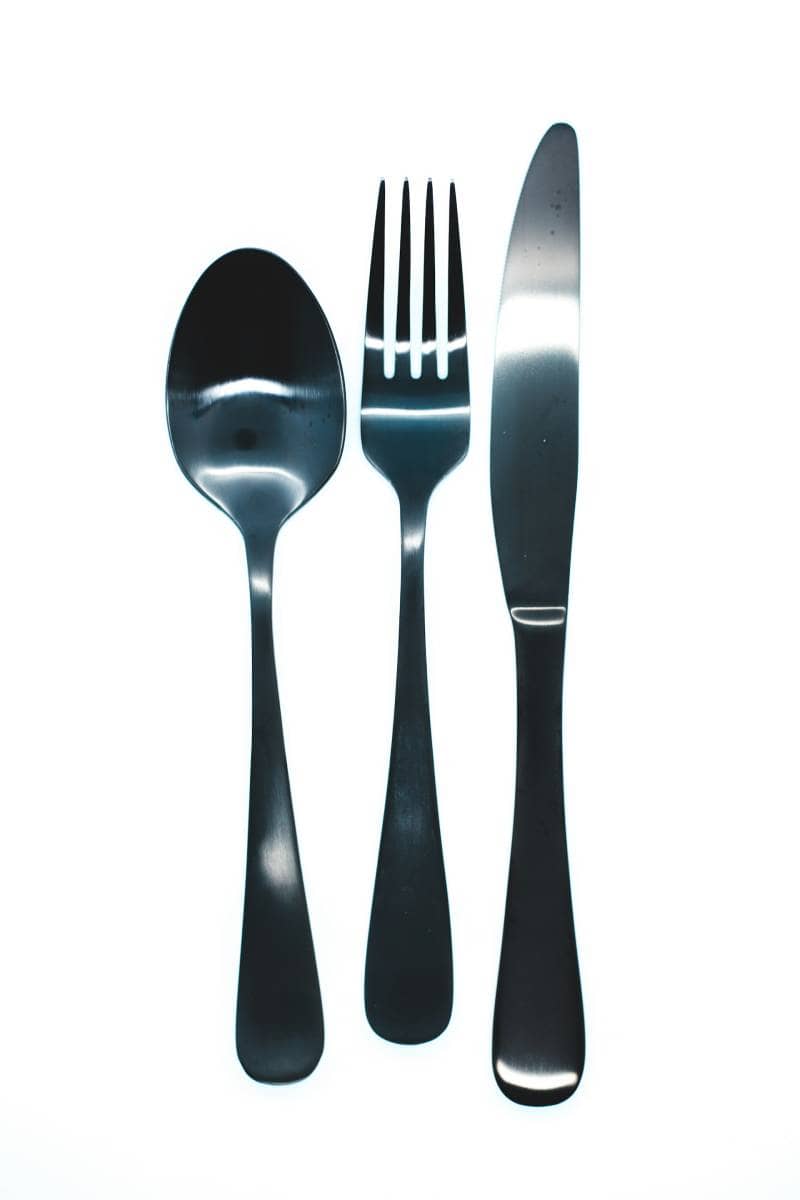
Be aware of the cleanliness of utensils and dishes, especially in less developed areas. Eating with dirty utensils can introduce harmful bacteria to your system. When in doubt, use disposable utensils or bring your own.
While these risks exist, they shouldn’t prevent you from enjoying local cuisine.
Use caution, follow local recommendations, and trust reputable establishments to minimize your risk of food poisoning while traveling abroad. Stay safe and savor the flavors of your journey!

